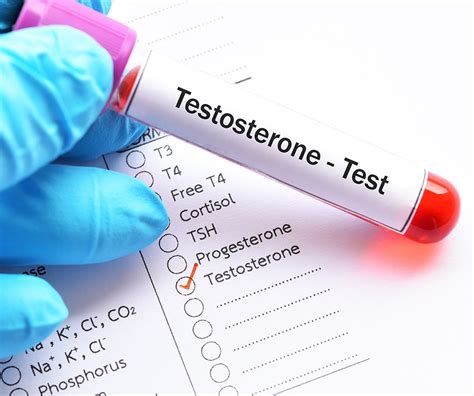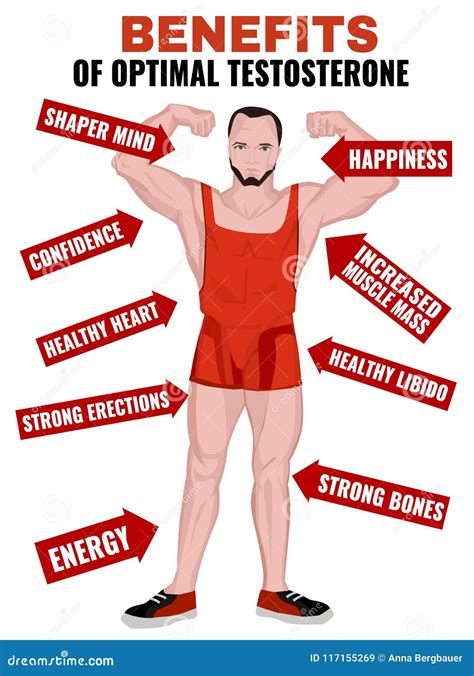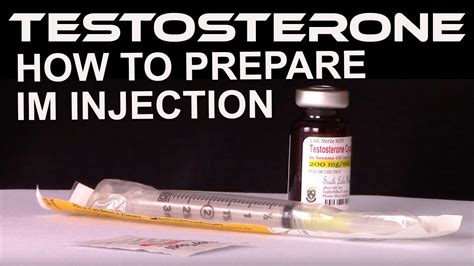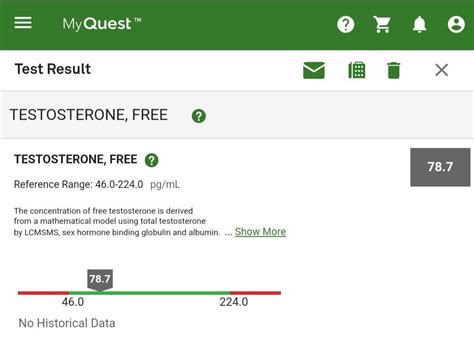Intro
Discover the importance of testosterone blood tests, diagnosing low testosterone, and hormone imbalance. Learn 5 ways a testosterone blood test can reveal health issues, symptoms, and treatment options, improving overall well-being and testosterone levels.
The importance of testosterone in the human body cannot be overstated. This hormone plays a crucial role in the development and maintenance of male reproductive tissues, promoting secondary sexual characteristics, and influencing overall health and well-being. However, for individuals experiencing symptoms of low testosterone, such as fatigue, decreased libido, or erectile dysfunction, understanding the testosterone levels in their body becomes essential. This is where a testosterone blood test comes into play, serving as a critical diagnostic tool. The test measures the levels of testosterone in the blood, helping healthcare providers diagnose conditions related to low testosterone and monitor the effectiveness of treatments.
As we delve into the world of testosterone blood tests, it's crucial to recognize the significance of accurate and reliable testing methods. The accuracy of these tests can significantly impact the diagnosis and treatment plan for individuals with hormonal imbalances. Moreover, understanding the different types of testosterone, including free testosterone and total testosterone, is vital for a comprehensive diagnosis. Free testosterone refers to the amount of testosterone that is not bound to proteins in the blood and is available to enter and affect cells. On the other hand, total testosterone measures all the testosterone in the blood, including both free and bound testosterone.
The process of undergoing a testosterone blood test is relatively straightforward. Typically, the test is performed in the morning when testosterone levels are usually at their highest. A healthcare provider will draw a blood sample from a vein in the arm, which is then sent to a laboratory for analysis. The results can help identify if an individual has low testosterone levels, a condition known as hypogonadism, or if there are other underlying issues affecting testosterone production. It's also important to note that lifestyle factors, such as diet, exercise, and sleep, can influence testosterone levels, making it essential for individuals to maintain a healthy lifestyle to support hormonal balance.
Understanding Testosterone Blood Tests

Understanding the components and implications of a testosterone blood test is fundamental. These tests are not just about measuring the total amount of testosterone in the blood; they also differentiate between free and bound testosterone. The bound testosterone is attached to proteins in the blood, such as sex hormone-binding globulin (SHBG) and albumin, and is not available to enter cells. The balance between free and bound testosterone is crucial for understanding an individual's hormonal status. Furthermore, factors such as age, obesity, and certain medications can affect testosterone levels, making regular testing and monitoring essential for men, especially those over 40, as testosterone levels naturally decline with age.
Key Components of Testosterone Blood Tests
The key components that a testosterone blood test evaluates include: - **Total Testosterone:** This measures all the testosterone in the blood, including both free and bound testosterone. - **Free Testosterone:** This measures the testosterone that is not attached to proteins and is available to enter and affect cells. - **SHBG (Sex Hormone-Binding Globulin):** This protein binds to testosterone, making it unavailable to the body's cells. - **Albumin:** Another protein that can bind to testosterone, though with less affinity than SHBG.Benefits of Testosterone Blood Tests

The benefits of conducting testosterone blood tests are multifaceted. Firstly, they enable healthcare providers to diagnose conditions associated with low testosterone levels accurately. This is crucial because hypogonadism, or low testosterone, can lead to a variety of symptoms that impact quality of life, including decreased libido, fatigue, and changes in body composition. By identifying low testosterone levels, individuals can seek appropriate treatment, such as testosterone replacement therapy (TRT), which can significantly alleviate symptoms and improve overall health.
Moreover, testosterone blood tests play a vital role in monitoring the effectiveness of treatments. For individuals undergoing TRT, regular blood tests are necessary to ensure that testosterone levels are within a healthy range and to adjust the dosage of medication as needed. This monitoring is crucial to prevent potential side effects associated with too high levels of testosterone, such as acne, sleep apnea, and increased risk of blood clots.
Monitoring Testosterone Levels
Regular monitoring of testosterone levels is essential for: - **Diagnosing Hypogonadism:** Identifying low testosterone levels to initiate appropriate treatment. - **Adjusting Treatment Plans:** Ensuring that testosterone replacement therapy is effective and safe. - **Preventing Side Effects:** Monitoring to avoid levels that are too high, which can lead to adverse effects.Steps to Prepare for a Testosterone Blood Test

Preparing for a testosterone blood test involves several steps to ensure accurate results. Individuals are typically advised to:
- Fast Overnight: Not eating or drinking anything besides water for a certain period before the test to prevent any immediate effects of food on hormone levels.
- Avoid Certain Medications: Informing their healthcare provider about any medications, including steroids and hormones, which can affect testosterone levels.
- Schedule the Test in the Morning: Since testosterone levels tend to peak in the early morning, testing during this time can provide more accurate results.
Considerations Before the Test
It's also important to consider the following: - **Inform About Supplements:** Letting the healthcare provider know about any supplements or vitamins being taken, as some can influence hormone levels. - **Be Aware of Timing:** Understanding that timing can affect results, with levels typically being higher in the morning and lower at night.Interpreting Testosterone Blood Test Results

Interpreting the results of a testosterone blood test requires a comprehensive understanding of what the numbers mean. The normal range for testosterone levels can vary slightly between laboratories but generally falls within a specific range for adult men. Levels below this range may indicate hypogonadism, while levels above can suggest other conditions, such as hypergonadism or the use of anabolic steroids.
It's also crucial to consider the context of the results. For instance, a single low reading may not necessarily confirm a diagnosis of hypogonadism, as levels can fluctuate. Repeat tests may be necessary to confirm a diagnosis. Furthermore, the balance between free and total testosterone, as well as the levels of SHBG and other binding proteins, provides valuable information about the body's hormonal status.
Understanding Your Results
When reviewing test results, consider: - **Total Testosterone Levels:** Evaluating if they fall within the normal range. - **Free Testosterone Levels:** Assessing the availability of testosterone to the body's cells. - **SHBG and Albumin Levels:** Understanding how these proteins affect the amount of free testosterone.Common Misconceptions About Testosterone Blood Tests

There are several misconceptions surrounding testosterone blood tests. One common myth is that these tests are only necessary for older men. However, low testosterone can affect men of all ages, and early diagnosis can significantly improve treatment outcomes. Another misconception is that testosterone replacement therapy is a one-size-fits-all solution. In reality, the dosage and form of testosterone therapy (e.g., gels, injections, patches) should be tailored to the individual's specific needs and health status.
It's also important to dispel the notion that lifestyle changes alone cannot impact testosterone levels. While certain medical conditions may require pharmaceutical intervention, adopting a healthy diet, exercising regularly, getting adequate sleep, and managing stress can all contribute to maintaining healthy testosterone levels.
Debunking Myths
Key points to remember: - **Age Considerations:** Low testosterone can affect men of all ages, not just older men. - **Personalized Treatment:** Testosterone replacement therapy should be tailored to the individual. - **Lifestyle Impact:** Healthy lifestyle choices can positively affect testosterone levels.Future Directions in Testosterone Blood Testing

The field of testosterone blood testing is evolving, with advancements in technology and our understanding of hormonal balance. Future directions may include more precise and non-invasive testing methods, potentially allowing for self-monitoring of testosterone levels. Additionally, research into the genetic factors influencing testosterone production and the development of more targeted therapies could revolutionize the diagnosis and treatment of hormonal imbalances.
The integration of artificial intelligence and machine learning in analyzing test results could also enhance the accuracy of diagnoses and the effectiveness of treatment plans. By leveraging these technologies, healthcare providers can offer more personalized care, tailoring treatments to the unique hormonal profiles and health needs of each individual.
Emerging Trends
Emerging trends and potential future developments include: - **Advanced Diagnostic Techniques:** More precise and less invasive methods for measuring testosterone. - **Personalized Medicine:** Tailoring treatments based on genetic and hormonal profiles. - **Technology Integration:** Using AI and machine learning to enhance diagnosis and treatment planning.As we move forward, it's essential to continue exploring and understanding the complexities of testosterone and its role in human health. By doing so, we can improve diagnostic tools, treatments, and overall care for individuals affected by hormonal imbalances.
What is the primary purpose of a testosterone blood test?
+The primary purpose of a testosterone blood test is to measure the levels of testosterone in the blood, helping diagnose conditions related to low testosterone and monitor the effectiveness of treatments.
How often should I get a testosterone blood test?
+The frequency of testosterone blood tests depends on individual health needs and the presence of symptoms. Generally, men over 40 may benefit from regular testing, especially if they are experiencing symptoms of low testosterone.
Can lifestyle changes affect testosterone levels?
+In conclusion, testosterone blood tests are a vital tool for diagnosing and managing hormonal imbalances. By understanding the importance, process, and implications of these tests, individuals can take proactive steps towards maintaining their health and well-being. We invite readers to share their thoughts and experiences with testosterone blood tests, and we encourage healthcare providers to continue advancing our understanding and treatment of hormonal conditions. Together, we can work towards a future where everyone has access to accurate diagnoses and effective treatments, leading to improved health outcomes and a better quality of life.
